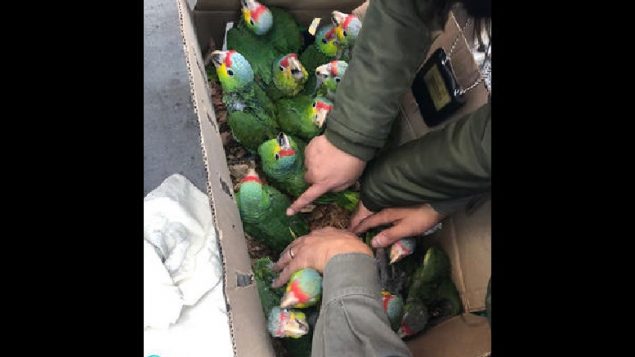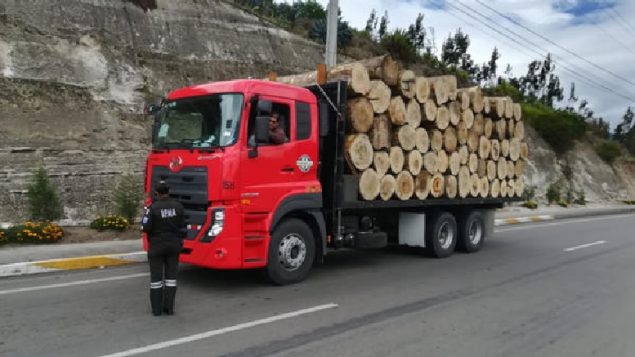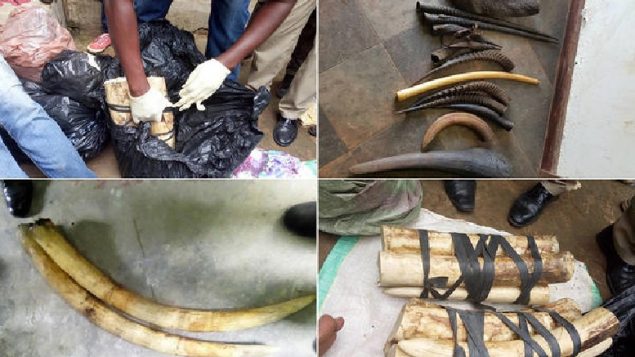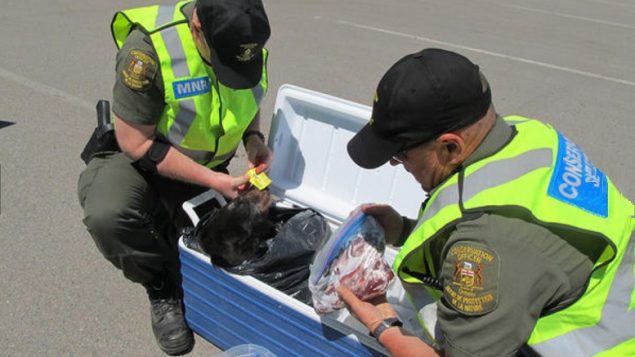Environmental crime estimated at $150 billion/yr
Wildlife and forestry crime is the fourth largest crime area internationally after illegal drugs, counterfeiting, and human trafficking.
Things like killing elephonts and rhinos for tusks and horns has long captured world media news, but environmental crime includes much much more.
This past month Interpol worked with 92 countries in countermeasures known as Operation Thunderstorm.
Sheldon Jordan is the Director General of Wildlife Enforcement with Environment and Climate Change Canada.
ListenWhile other international anti-poaching/anti-smuggling operations are often this was the largest ever mounted globally against perpetrators of wildlife crime.

Sheldon Jordan (Youtube-Interpol)
Initiated by the INTERPOL Wildlife Crime Working Group, there were some 2000 seizures which included:
- – 43 tonnes of wild meat (including bear, elephant, crocodile, whale and zebra)
- -1.3 tonnes of raw and processed elephant ivory
- -27,000 reptiles (including 869 alligators/crocodiles, 9,590 turtles and 10,000 snakes)
- -almost 4,000 birds, including pelicans, ostriches, parrots and owls
- -several tonnes of wood and timber
- -48 live primates
- -14 big cats (tiger, lion, leopard and jaguar)

Operation Thunderstorm resulted in the rescue of almost 4,000 birds including these Amazona autumnalis parrots intercepted by Mexican Police authorities. (Interpol)
One of the illicit products seized in Canada involved a container of 18 tonnes of European eel which are under threat in Europe and banned from export. This hurts not only the survival of that European species, but the market in Canada where the domestic eel market is available and not under threat.

Cars, trucks, boats and cargo transporters suspected of moving illicit products were targeted with searches carried out by officers at checkpoints such as this one in Ecuador. Much of the world’s paper comes from illegal logging which can destroy entire ecosystems (Interpol)
Jordan points out that in addition to the harm it does in severely threatening the survival of certain species like elephant and rhino, a less thought of crime involves destruction of forests and their ecosystems through illegal logging. He says between 20 and 35 per cent of paper comes from illegally sourced wood.
In Canada, taking of wild ginseng which only grows in certain areas of Ontario and Quebec is a problem as it is when sections of ecosystems are removed.
He notes that the carcasses of two polar bears were among the items seized.

Operation Thunderstorm saw the seizure of some 1.3 tonnes of raw and processed elephant ivory, including during this seizure in Arusha (Tanzania) where elephant tusks and horns of rhino, bush buck, impala and buffalo were also recovered. (Interpol)
He says people should be aware that poaching and live animal smuggling is a crime that not only seriously affects ecosystems around the world but has a wider less obvious effect on economies. He says for example Tanzania has lost two-thirds of its elephants, which have been a major tourist draw to the country providing jobs and injecting vast amounts of money into the local economy. With no elephants, there will be no tourists and a cascading negative effect on the country.







For reasons beyond our control, and for an undetermined period of time, our comment section is now closed. However, our social networks remain open to your contributions.